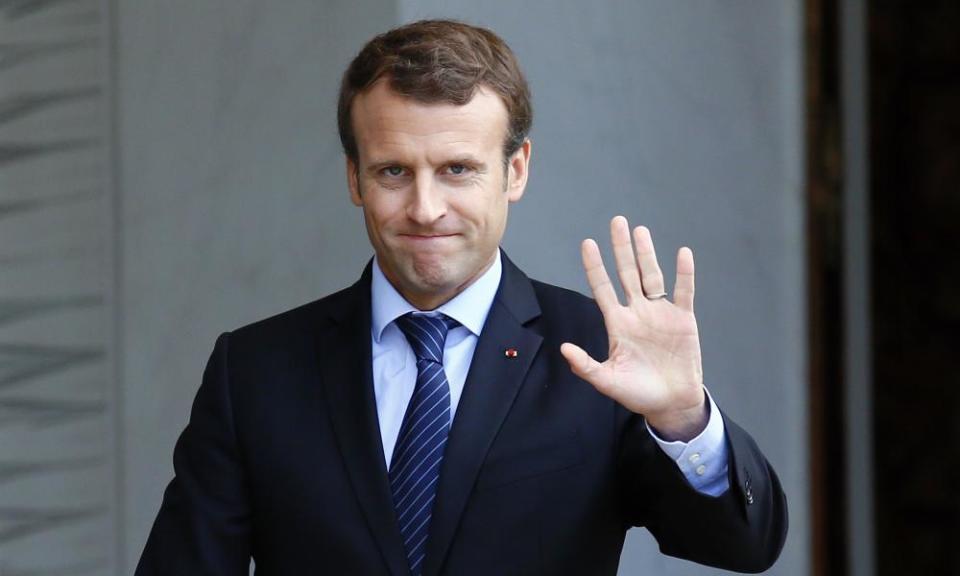Centrist MPs could save us from hard Brexit – but they’ve gone silent | Anand Menon

The lunatics have taken over the asylum. The Labour and Conservative conferences were proof positive that the moderates no longer hold sway. The cheers were for the zealots, whether that was John McDonnell or Jacob Rees-Mogg. And, whether from front or back benches, it is they who rule the roost when it comes to leaving the EU. So where have the centrists (and I acknowledge, as Helen Lewis has underlined, that the term is imprecise and potentially misleading, but I can think of no better one) gone? And how should they react?
The missing middle is all the more striking as there is a clear majority in parliament for a much softer form of Brexit than both leaderships seem committed to. Moreover, public opinion appears to favour such an outcome, too. Indeed, strikingly, a recent poll carried out for the Times found that 42% think the UK is right to leave the EU and 47% think it is wrong, the biggest gap since the referendum.
Yet Brexit elicited barely a mention from the platform in either Brighton or Manchester. From a party management point of view, this made perfect sense. Both Labour and the Conservatives are riven with divisions between leavers and remainers, hard and soft Brexiters. Avoiding debate means the respective leaderships can cling to the line that Brexit means hard Brexit: departure from both the single market and customs union.
Both parties are officially backing policies that will make us poorer as a country. A hard Brexit will dramatically decrease our trade with our nearest and largest trading partner, while impacting on levels of foreign investment here.
Where, then, are the voices of moderation? On the evidence of the last few weeks, desperately rowing in behind their party leaderships. While David Lammy gushed praise for Jeremy Corbyn’s conference speech, Philip Hammond hardly mentioned Brexit in his own peroration in Manchester. At fringe events, former remainers acted for the most part like converts. Stephen Kinnock and Yvette Cooper triangulated desperately on free movement, while Charlie Elphicke has clearly drunk the Brexit Kool-Aid. Once home from Manchester, Nicky Morgan wrote of the need for the Tories to reclaim the moderate centre ground – without mentioning the Brexit revolution.
And so, on the biggest single issue of our time, a process that promises to rewrite the political economy of the country, relatively few opposing voices are being raised in parliament.
There are, of course, perfectly good, career-related reasons for this silence. The hard Brexiters hold the whip hand and indeed control the whips. On the Labour side, moreover, non-Corbynite MPs fear deselection processes triggered by Momentum to punish disloyalty.
Moreover, there is genuine loyalty to party. Labour MPs fear prolonging Tory rule by fostering disunity. Similarly, many – if not most – Conservatives believe a Corbyn administration would be more catastrophic than the hardest of hard Brexits.

So on the biggest issue of the day, the centre ground is disappearing before our eyes. Little surprise that this has sparked renewed interest in the idea of a new party to fill the void. Remarkably, at one point during the Tory conference, I noticed Ladbrokes were offering 200-1 on the Democrats – a party that exists solely on Twitter – winning most seats at the next election (the odds have subsequently lengthened).
France, we are told, provides a model. There, the president, Emmanuel Macron, created a political movement from scratch and wiped the floor with incumbents of left and right. Yet beware appealing analogies. Macron certainly saw off the traditional parties, but they largely did his work for him. The incumbent socialist president was polling in single digits, while François Fillon, the candidate of the centre right, became embroiled in a scandal about corruption and nepotism.
The chances of something similar happening over here seem remote. For one thing, far from the two major parties collapsing, they are resurgent. Between them, Labour and the Conservatives won no less than 82% of the votes in the last election. The last time they had gobbled up this proportion of the vote was in 1970.
And of course, we live under an electoral system designed precisely to produce two-party politics. Granted, there have been times in our recent past when it has failed to do so. But that was a moment when Labour and the Conservatives had converged on an ideological centre ground, driving people to experiment with alternatives. When the two big beasts are as ideologically polarised as now, all eyes tend to be on them.
And beyond the electoral hurdles there are financial ones. While a French presidential campaign is hardly cheap, it is far more so than campaigning in a parliamentary system. Running campaigns and gathering data in 650 constituencies is a herculean task.
So the two major parties are following an extreme path, internally hugely divided and yet enormously popular. The structural constraints on a new entrant were perhaps most neatly encapsulated in Nick Clegg’s call for those opposed to Brexit to join Labour or the Conservatives.
Easy, then, to understand why those MPs opposed to the course we are on have chosen to keep their heads down. Kicking the can down the road is, after all, a tried and tested political strategy.
Yet, this time, the road involved is a cul-de-sac. In March 2019 our EU membership will cease. At that point, even under the best-case scenario, large-scale economic adjustment will take its toll in the short term. Under the scenario considered more realistic by the majority of serious economists, leaving the single market and the customs union will significantly disrupt trade with the European Union, imposing a serious hit on the British economy.
What then? Do the moderates really believe that this kind of economic fallout will lead to a lurch back to the political centre ground? Will sensible, centrist politics really be the victor from an economic shock that might rival that of the financial crisis in scale? At a minimum, neither party will have a hope in hell of delivering on its policy pledges. It is hardly inconceivable that even more extreme political alternatives profit from the dissatisfaction that is bound to result.
The prospects for the political middle ground are bleak. Their influence in their own parties is negligible. Speaking out is not safe. Nevertheless, the time for silence is past. Allowing a hard Brexit would harm the country and, in all likelihood, disempower them still further. People who knowingly walk off a cliff are, if anything, more culpable than those who simply refuse to admit that the cliff is there before crashing to earth. Surely it’s time for the centrists to be bold?
• Anand Menon is a director of UK in a Changing Europe

 Yahoo News
Yahoo News 
